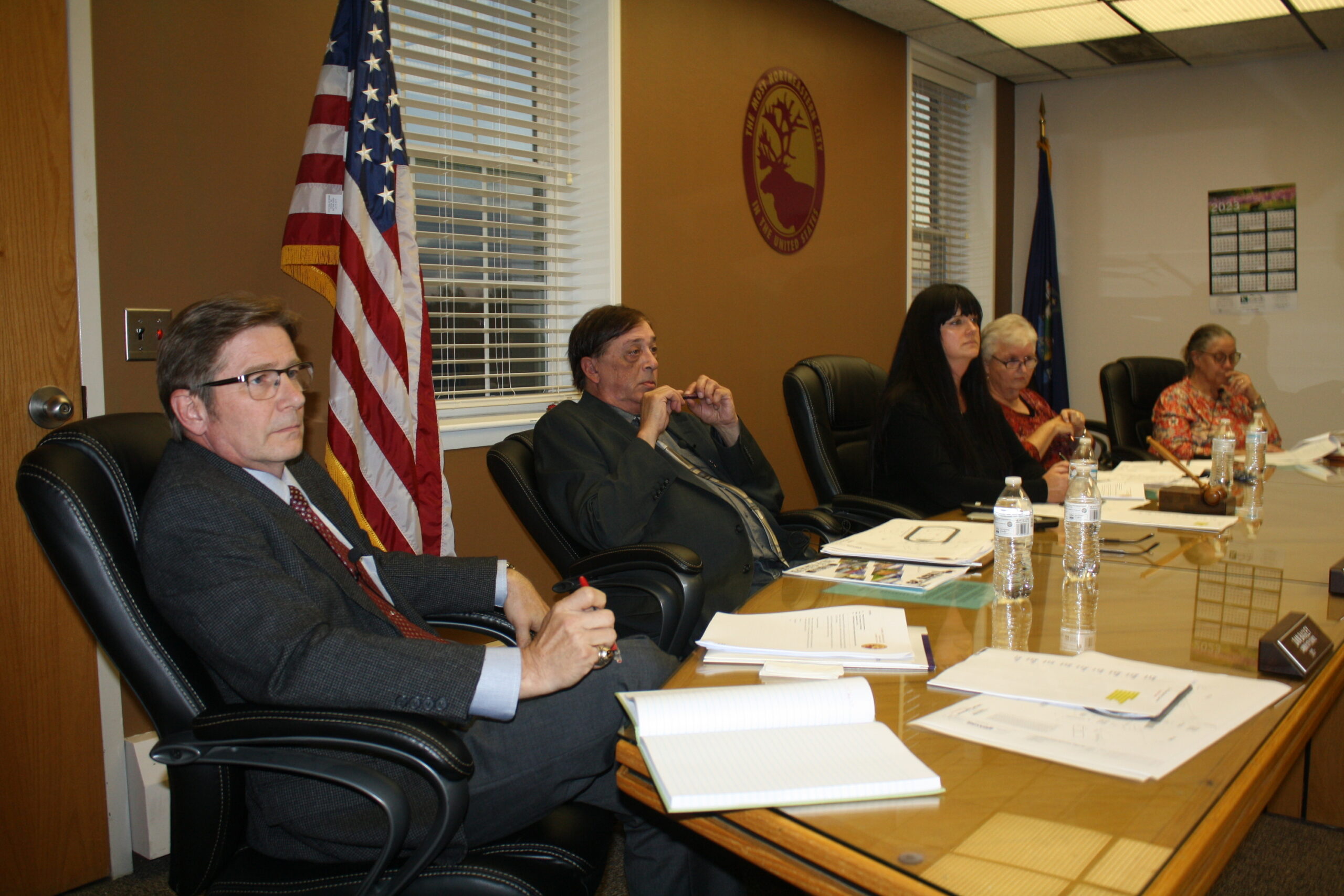
CARIBOU, Maine — RSU 39 officials proposed that the city contribute more than $160,000 to upgrade Caribou High School’s running track.
The $867,900 project would include $850,000 for the resurfacing and $17,900 in engineering fees. RSU 39 requested that the city contribute $164,500 during a City Council meeting Monday.
The school district is using $588,290 in federal COVID-19 relief funds and $115,000 from its capital reserve account but needs an additional $164,500 to install the track’s rubber surface in spring 2024, said interim Superintendent Jane McCall.
Without the rubber surface, the track would not be completely usable for students and community members, McCall said.
“A gravel track is still safe but not completely,” McCall said. “If we don’t get the $164,500 [from the city], it could take a year or two for us to finish the project with our budget.”
The City Council decided to wait until all councilors are present to vote on RSU 39’s request. Mayor Jody Smith and Councilor Mark Goughan are both farmers and were absent because of the potato harvest, said Deputy Mayor Courtney Boma.
The requested $164,500 would come from a tax relief fund that the Caribou City Council created in 2021.
The council’s vote will determine whether RSU 39 includes $164,500 in a bond referendum going before Caribou voters in November. If it is, the bond total will be $660,000. Without the $164,500, the bond would total $495,500.
In either scenario, the bond would include $320,000 for new LED lights for Caribou High School’s track, $17,000 in engineering fees for the track’s electrical upgrade, $50,000 for a new athletic scoring and timing building, $65,000 to reconstruct and resurface the high school tennis courts and $43,500 for a construction contingency of 10 percent.
RSU 39 Business Manager Mark Bouchard said that the school board approved the bond referendum as a potential way to get the non-track-related projects done before material and supply costs continue rising.
“These projects have been kicked down the road year after year [due to our budget],” Bouchard said. “The board recognized that kicking these projects down the road would be fiscally irresponsible to taxpayers, as it would cost more to complete them later.”
McCall noted that groundwork has already begun to remove the track’s current above ground light system and replace that with an underground system. The timing and scoring building was unsafe to the point where it needed to be torn down this week.
In other business, city councilors voted to accept $45,000 and numerous snowmobile trail equipment from the Nordic Lakers Snowmobile Club. Its members are discontinuing the club after facing a long-time shortage in volunteer trail groomers, said Gary Marquis, Caribou Parks & Recreation superintendent.
Nordic Lakers had maintained a 13-mile section of snowmobile trails in New Sweden, Westmanland and Stockholm that connected with Caribou’s 110-mile system. Club members are willing to donate their John Deere Gilbert groomer, drag, fuel tank and signs, Marquis said.
“Maintaining these trails is important for the businesses in Caribou and New Sweden that benefit from snowmobile traffic,” Marquis said.
Caribou Parks & Recreation will also receive $9,800 that the Nordic Lakers got every year from the state’s Snowmobile Capital Equipment Reimbursement Grant. Marquis said that Maine’s Department of Agriculture, Conservation and Forestry, which runs the program, approved adding the $9,800 to Caribou’s annual grant amount.
The Snowmobile Capital Equipment Reimbursement Grant places $5 from residents’ snowmobile registration fees into a dedicated fund. Registered clubs receive the total of those funds every year.
“This year our grant is close to $70,000, so when you add $9,800, that is a substantial increase,” Marquis said. “We’d like to use the $45,000 from Nordic Lakers into a separate account for major repairs to their groomers or major work on the trails.”
Marquis plans to continue storing the Nordic Lakers’ groomers and other equipment at the Nordic Lakers’ storage building in Stockholm.
Caribou Parks & Recreation is responsible for maintaining all Caribou snowmobile trails, while the separate Caribou Snowmobile Club helps with signage and fundraises for new equipment purchases.
At least a few groomers from the Nordic Lakers club want to continue helping Caribou Parks & Recreation maintain the New Sweden, Westmanland and Stockholm trails, Marquis said.
Councilors learned from City Manager Penny Thompson that the city received the plan of action from the Environmental Protection Agency for its emergency clean-up at the former steam plant on Lower Lyndon Street.
This summer, the city received $900,000 in EPA Brownfields funds to remove asbestos and petroleum oil from the former diesel plant. Since then, city officials learned of plans to clean the adjacent steam plant first, due to that plant’s closer proximity to the river.
EPA officials will be at the steam plant Oct. 3 to begin removing 11,000 feet of asbestos pipe insulation and 14,000 square feet of surface material with asbestos, Thompson said.
The steam plant will be cleaned prior to the diesel plant. Work at the steam plant will be funded through The Comprehensive Environmental Response, Compensation and Liability Act, which gives the EPA money from a federal “superfund” for emergency projects.
Councilors also honored City Clerk Danielle Brissette for becoming a certified clerk of Maine. Brissette received the certification at the Maine Town and City Clerks Associations’ annual Networking Day Sept. 12.
The council also recognized Roland Anderson, a resident of the Maine Veterans Home in Caribou, who will turn 100 years old Oct. 6.
The next regular Caribou City Council meeting will be held Tuesday, Oct. 10 at 6 p.m. at Caribou Municipal Building, located at 25 High St.







